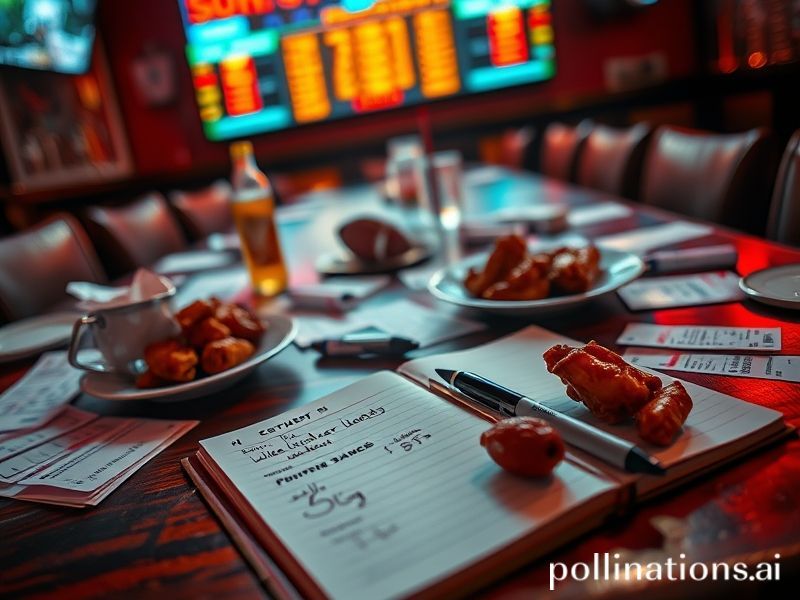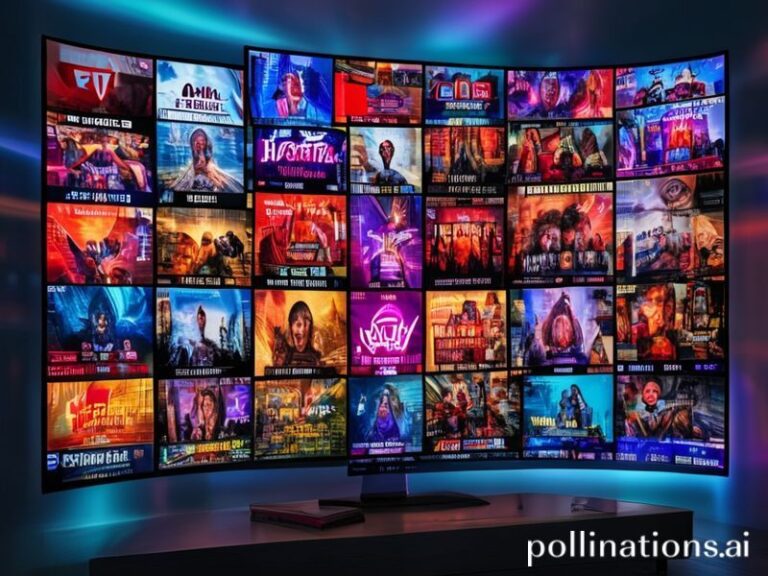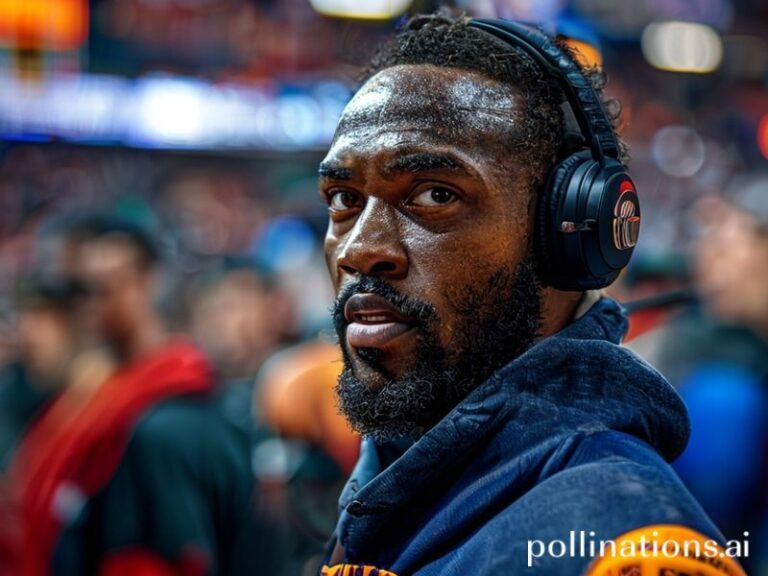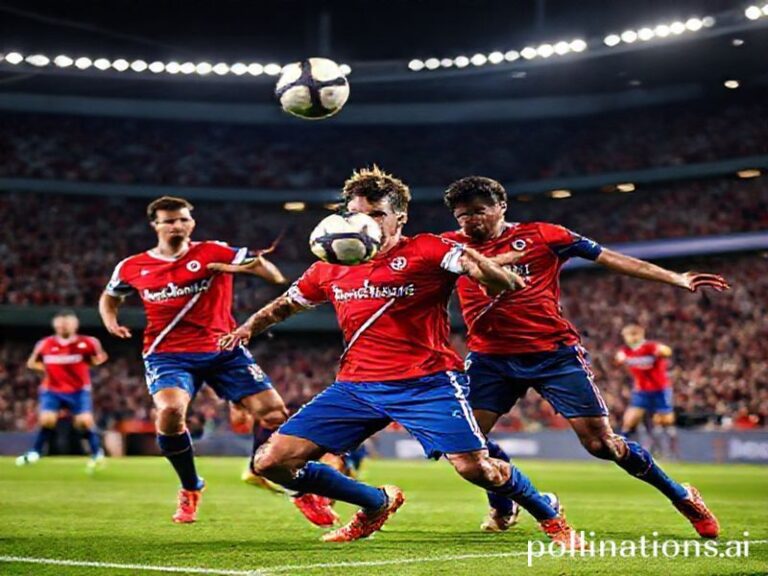Global Gridiron Gambling: How NFL Picks Became the World’s Favorite Pointless Prediction
**Gridiron Prophecies: How NFL Picks Became the World’s Favorite Guessing Game**
While the rest of the planet grapples with climate summits, currency fluctuations, and the occasional coup d’état, a peculiar American ritual has infected the global consciousness like a particularly virulent strain of cultural influenza. NFL picks—those weekly predictions about helmeted gladiators chasing an oblong ball—have somehow become international currency, proving that humanity’s capacity for irrational obsession knows no borders.
From the shadow of the Eiffel Tower to the neon canyons of Tokyo, office workers now debate the merits of zone coverage versus man-to-man with the same fervor once reserved for existential philosophy. British pubs that once echoed with discussions of Brexit now reverberate with heated arguments about whether the Cowboys’ offensive line can protect Dak Prescott long enough to complete a forward pass—a concept that still baffles most cricket enthusiasts.
The internationalization of NFL prognostication represents perhaps the most successful American export since fast food and questionable foreign policy. Bookmakers from Macau to Monte Carlo now offer odds on games that most of their clientele will never watch, played in stadiums they’ll never visit, by athletes whose names they can’t pronounce. It’s globalization at its finest: taking something quintessentially American, wrapping it in mathematical probability, and selling it to people who think a touchdown is something airplanes do.
What makes this phenomenon particularly delicious is how it exposes our shared human delusion that patterns exist in chaos. From Mumbai mathematicians to Stockholm statisticians, brilliant minds apply complex algorithms to predict the outcome of games where a single awkward fall, a gust of wind, or a referee’s questionable eyesight can render all calculations meaningless. It’s like using quantum physics to predict what your cat will knock off the table next—technically impressive, spiritually hollow.
The economic implications are staggering. International betting markets now move billions on American football, creating a shadow economy that dwarfs the GDP of several small nations. When a starting quarterback stubs his toe in practice, currency traders in Singapore adjust their positions. A torn ACL in Arizona sends ripples through cryptocurrency markets in Kazakhstan. It’s enough to make one nostalgic for the simplicity of tulip mania.
Perhaps most poignantly, NFL picks have become the universal language of masculine bonding in an era when traditional male friendships have all the structural integrity of a chocolate teapot. From Berlin to Buenos Aires, men who can barely discuss their feelings can engage in elaborate debates about whether the 49ers will cover the spread. It’s therapy disguised as sports analysis, emotional repression with point spreads—a global support group for people who would rather calculate passer ratings than confront their mortality.
As we stumble deeper into the 21st century, with democracy crumbling and ice caps melting, there’s something perversely comforting about millions of humans worldwide united in the fundamentally absurd activity of predicting unpredictable sporting events. In a world where actual outcomes—elections, pandemics, climate change—feel increasingly random and terrifying, perhaps there’s solace in choosing our own flavor of uncertainty.
The NFL pick isn’t just a wager; it’s a prayer to the god of controlled chaos, a daily affirmation that while we can’t predict the important things, we can pretend to understand the trivial ones. And in that beautiful delusion, we find our common humanity—desperately seeking order in a universe that clearly has better things to do than accommodate our need for certainty.
Place your bets, humanity. The house always wins, but at least we’re all losing together.







